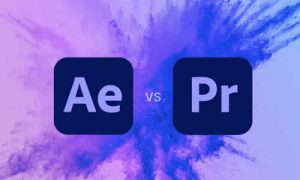In the realm of digital marketing, SEO (Search Engine Optimization) is an essential tool for increasing a website’s visibility. Within this field, there are two main strategies: SEO On-Page and SEO Off-Page. Understanding the differences between these approaches is crucial for creating an effective optimization strategy.
What is SEO On-Page?
SEO On-Page refers to all optimization practices that can be performed directly on your website. This includes the structure and content of the pages. The idea is to ensure that search engines can understand and index your site efficiently.
Crucial Elements of SEO On-Page
One of the key elements of SEO On-Page is the proper use of keywords. It’s vital to conduct keyword research to understand what terms your audience is searching for. Naturally incorporating them into titles, subtitles, and the body of the text helps improve the page’s relevance.
Additionally, the meta description is another important aspect. It should be engaging and informative, as it appears in search results. A clear and concise title, along with user-friendly URLs, also contributes to better performance in search engines.
What is SEO Off-Page?
SEO Off-Page, on the other hand, refers to all actions taken outside of your website to increase its authority and relevance. The main strategy here is building backlinks. When other sites link to yours, it signals to search engines that your content is valuable and trustworthy.
Importance of SEO Off-Page
In addition to backlinks, SEO Off-Page also includes online reputation management and social media presence. Sharing your content on social platforms can enhance visibility and generate additional traffic. Engaging with your audience on social media also helps build a strong community around your brand.
Comparison Between SEO On-Page and Off-Page
While SEO On-Page focuses on internal optimizations to improve user experience and indexing, SEO Off-Page is more about credibility and authority. Both are essential and complement each other.
For example, a site with great content (SEO On-Page) may not perform well if it lacks sufficient backlinks (SEO Off-Page). Similarly, a site with many backlinks but low-quality content will struggle to retain visitors.
Implementing Both Strategies
To achieve the best results, it’s crucial to integrate both strategies into your SEO approach. Start with a solid foundation of SEO On-Page by optimizing your content and structure. Then, develop an SEO Off-Page strategy focused on building relationships and backlinks.
















